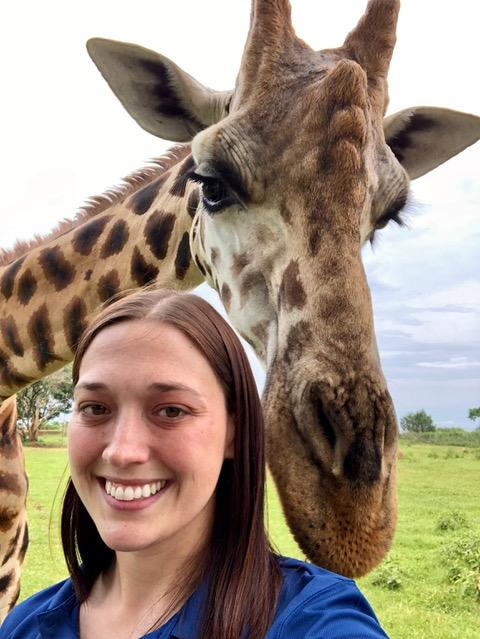
Lately, Victoria Hall, DVM, MS, DACVPM, has been asking herself, “Where can The Raptor Center go next?” The Raptor Center (TRC) is excited and honored to welcome her to the team as the Patrick T. Redig Endowed Chair, effective June 1.
In this new position, funded by our generous and invested donors, Hall will be working with TRC’s Raptor and Ecosystem Health program. She brings with her more than a decade of experience working in veterinary medicine, epidemiology, and One Health—the relationship between humans, animals, and the environment we share—across the globe. Her great diversity of experience and creative problem-solving bring crucial expertise and resources to the TRC team at a challenging time. Together with committed supporters, Hall will help TRC continue its mission of rehabilitation and education.
“I am most impressed by TRC’s heritage of expertise, of being a world leader,” Hall says. “The innovative medical, rehabilitation, and conservation training and research programs, combined with the outreach and education programs, mean we are constantly helping to advance knowledge, create better-trained conservation professionals, and inspire the public to be better environmental stewards. We have the reach and ability to bring about global change.”
Hall earned both a DVM and a master’s degree in preventive veterinary medicine from Mississippi State University in Starkville, Miss. She most recently held a position as a veterinary epidemiologist in the Wildlife Health Sciences Department at the Smithsonian's National Zoo and Conservation Biology Institute in Washington, D.C., where she coordinated partnerships with outside stakeholders, developed emergency preparedness planning around foreign animal diseases, worked as part of species-wide research, and served as the program manager for Smithsonian’s Conservation through Education program, which partners with universities in Africa and Asia to carry out wildlife veterinary curriculum development and training.
"We are thrilled to welcome Dr. Hall, whose extensive work at the intersection of wildlife, humans, and the environment will add greatly to a team that has been working in this space for over 40 years,” says Julia Ponder, DVM, MPH, executive director at TRC. “In a world with challenging environmental and conservation issues, Dr. Hall joins TRC in addressing these concerns through research, teaching, and outreach education."
Hall's impressive credentials also include positions with the Food and Agriculture Organization of the United Nations, the United States Department of Agriculture Foreign Agricultural Services, and the Centers for Disease Control and Prevention, where she was based out of the Minnesota Department of Health and focused on foodborne, waterborne, vectorborne, and zoonotic diseases. And as a clinical wildlife veterinarian at the Wildlife Center of Virginia in Waynesboro, Va., she treated numerous native Virginia wildlife, including raptors, songbirds, and bats. She also assisted with research into standardized blood laboratory values for native wildlife, looking into lead blood values in bald eagles with and without clinical signs of illness.
Through volunteer work with World Vets, Hall participated in a U.S. Navy mission called the Pacific Partnership. This annual effort brings together governmental, humanitarian, and nongovernmental organizations to improve global disaster response work. She worked on a team to facilitate animal health and public health officer trainings in the Marshall Islands, Solomon Islands, and Kiribati to improve animal and human health.
Now, she looks forward to being captivated by raptors every day. “Watching an eagle soar or staring into the eyes of an owl—it’s all amazing,” says Hall. “The ability to treat individual animals, as well as help conserve whole populations, is very exciting to me.”